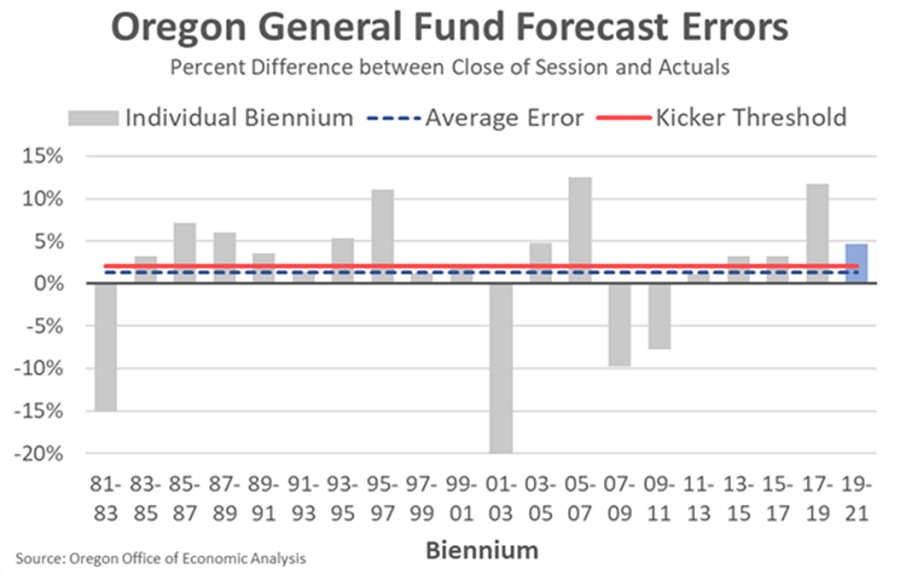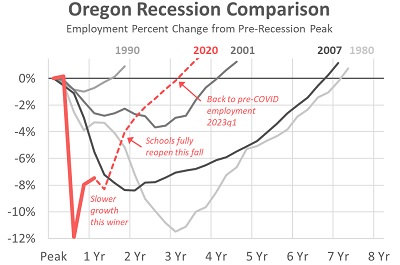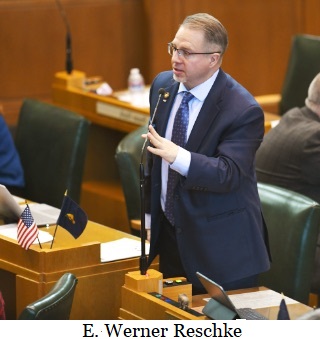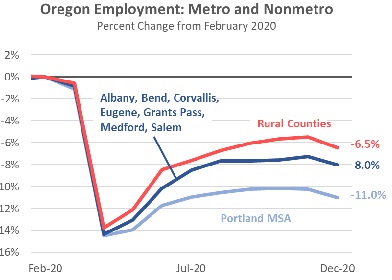 Post an Event
Post an Event
| Benton County Republicans’ Private Fundraising Event, “Bent-on Boots and Bling” with Trey Taylor |
| Friday, September 5, 2025 at 5:00 pm |
| Featuring Trey Taylor
Music Private Event
Friday, September 5, 2025 5:00-5:30 pm VIP Reception
5:30-8:00 pm Heavy Appetizers,
Auction, Concert
Red: $750 VIP Reception
Front Row Table Sponsor
White: $500 Table Sponsor
Blue: $50 per person
Limited Seating. Get Yours Now!!!
Support Local
Dress up: Bling, Cowboy, Patriotic Benton County Republican
FUNDRAISER
www.BentonGOP.org
Get your tickets today at:
https://www.bentongop.org/event-details/benton-county-republicans-fundraiser/form
About Trey:
Trey is the youngest African American Man in Country Music History. The Denver Post wrote
"It's impossible to miss his enthusiasm. With a fondness for cowboy boots, gaudy colors and dazzling jewelry, Trey Taylor could stand toe to toe with any of the Pop, Country or even Rap
contemporaries of his generation.“ |
| Trysting Tree Golf Club, 34028 NE Electric Rd., Corvallis |
If projected revenues are up, why do we need new taxes?
Editor's note: This is the second in a multipart series exploring tax measures before the Oregon Legislature during the 2021 session
As the Oregon Office of Economic Analysis presented their
revenue forecast they said that the "Oregon March forecast puts kicker credit back in play," which is interesting because we're supposed to be in a recession and like planes lining up to land as a major airport, the revenue bills have been queuing up in the Oregon House Revenue Committee, chaired by Representative Nancy Nathanson (D-Eugene), where all bills for raising revenue must originate.
They did hedge. Saying, "kicker credit is far from a sure thing since the tax season has yet to get under way," but they are cautiously projecting a personal kicker of $571 million and a corporate kicker of $420 million, though this money doesn't kick back to corporations. It goes to K-12 education, which frees up general fund money for the Legislature to spend as they wish.
Bills for raising revenue also require a three-fifths majority vote in each chamber to pass. Because of this, as Democrats barely have the numbers in both chambers to win a tax vote, it's easier for them if they can find a way to pass a revenue increase that doesn't require the super-majority. They can do this in many ways, including changing the eligibility requirements for qualifying for a tax.
Oregon's kicker law is a part of the Oregon Constitution and can be found in Article IX, Section 14:
Section 14.
(1) As soon as is practicable after adjournment sine die of an odd-numbered year regular session of the Legislative Assembly, the Governor shall cause an estimate to be prepared of revenues that will be received by the General Fund for the biennium beginning July 1. The estimated revenues from corporate income and excise taxes shall be separately stated from the estimated revenues from other General Fund sources.
(2) As soon as is practicable after the end of the biennium, the Governor shall cause actual collections of revenues received by the General Fund for that biennium to be determined. The revenues received from corporate income and excise taxes shall be determined separately from the revenues received from other General Fund sources.
(3) If the revenues received by the General Fund from corporate income and excise taxes during the biennium exceed the amount estimated to be received from corporate income and excise taxes for the biennium, by two percent or more, the total amount of the excess shall be retained in the General Fund and used to provide additional funding for public education, kindergarten through twelfth grade.
(4) If the revenues received from General Fund revenue sources, exclusive of those described in subsection (3) of this section, during the biennium exceed the amount estimated to be received from such sources for the biennium, by two percent or more, the total amount of the excess shall be returned to personal income taxpayers.
 --Staff Reports
--Staff Reports| Post Date: 2021-02-25 16:04:28 | Last Update: 2021-02-25 16:02:16 |
“This session ought to be helping Oregoniansâ€
In a press release, the Senate Republican Caucus has demanded that Democrat leaders bring an increased sense of urgency and focus to the biggest issues facing Oregonians. They appear to have denied quorum to hold floor sessions for the time being.
“Throughout the pandemic, the Legislature has abdicated too much responsibility to the Governor. We cannot sit by and watch the Governor fail to deliver on the biggest issues facing Oregonians today. It's time to take some of the responsibility and get to work on the issues that matter most to Oregonians. We are demanding legislation aimed at school re-openings, vaccine distribution, economic recovery, and government accountability be moved to the top of the priority list,†said Senate Republican Leader Fred Girod (R-Lyons).
According to Senate Leadership, students are suffering from school closures. Seniors, as well as rural Oregonians, are being failed by an abysmal vaccine rollout. Working families are struggling to make ends meet.
For these reasons, Senate Republicans say they are standing in solidarity with them by staging a protest and invoking First Amendment rights. This is their statement:
REOPEN SCHOOLS NOW
EIGHTY PERCENT of Oregon’s students last week remained out of the classroom. This flies in the face of increasing evidence. The CDC has recognized that school reopenings are safe, even if teachers aren’t vaccinated. According to the Legislative Fiscal Office, the Governor received hundreds of millions of dollars from the federal government for resources schools need to reopen. President Biden’s COVID bill would give K-12 schools another $1.2 billion, yet classrooms remain empty.
“The Governor has completely failed Oregon families and students,†Sen. Girod said. “She first promised that schools would reopen on February 15. She failed to put our kids first. Now she is moving the goalposts to the spring. Parents and kids no longer have any trust in her empty promises. We need tuly bold action. Gov. Brown is the Superintendent of Public Instruction. She needs to start acting like it and demand teachers unions immediately send their members back into the classroom.â€
Senate Republicans have an education package to give parents and kids control over their education and use budget authority to reopen schools.
EQUITABLE VACCINE DISTRIBUTION
Oregon is the 3rd worst in the country in vaccinating seniors, who are most vulnerable to COVID-19. To make matters worse, vaccines have been siphoned from rural counties and redirected to Portland, despite having one of the highest vaccination rates in the state.
This vaccine is a matter of life and death,†Girod continued. “The Governor doubled down deprioritizing seniors in the vaccine line, even when evidence suggested teachers didn’t need to be vaccinated to reopen schools. That decision almost certainly cost lives, and she tried to get away with covering up those deaths, when OHA decided they didn’t want to release the data. Its time for the Legislature to step in and hold the Governor accountable for these failures. We must use vaccines to save the most number of lives. That means seniors need to be prioritized and rural Oregon needs their fair share.â€
HELPING STRUGGLING OREGONIANS RECOVER
Oregon’s economic recovery lags behind the rest of the country. While the United States has recovered 56% of jobs lost during the pandemic, Oregon has only recovered 37%. Our unemployment rate is well above the national median. Thousand struggle to pay rent, tens of thousands are without jobs, and women are dropping out of the workforce at an alarming rate.
Despite these facts, Governor Brown extended her emergency declaration, further tightening her grip on small businesses and working Oregonians.
“Our main concern this session ought to be helping Oregonians recovery from the pandemic and its economic devastation,†Senate Republican Leader, Fred Girod said. “Yet Democrats are intent on taxing COVID relief money and increasing the cost of living for Oregonians. I urge Legislative leaders to pass Senate Republican bills aimed at giving working Oregonians relief and getting them back to work.
“Yesterday’s Revenue Forecast indicated that the state has brought $800 million is extra tax dollars. President Biden’s bailout plan will add billions of more dollars. There is no need for new taxes!â€
--Staff Reports| Post Date: 2021-02-25 13:50:46 | Last Update: 2021-02-25 13:52:40 |
Defend or settle. It
A bill that will have a huge impact on business,
HB 2205, introduced by State Representatives Marty Wilde (D-Eugene) and Barbara Smith Warner (D-Portland). Born out of the California Private Attorney General Act, PAGA, it establishes procedures for persons to bring legal action in the name of the state to recover civil penalties for violations of state laws. It provides for the distribution of civil penalties recovered. Fear of a lawsuit has always been a concern of many small-business owners, even more so during this pandemic. But the PAGA bill,
HB 2205, which had its first public hearing yesterday, would further raise the stakes for Oregon small businesses by allowing plaintiff’s attorneys to sue private businesses on behalf of the state, resulting in a no-win situation -- either settle out of court to minimize out-of-pocket costs, or even worse, try to defend the case and end up paying sizable attorney fees. It’s a simple money grab at the expense of the taxpayers.
The business community has a bill to respond to that threat,
HB 2638. It has been introduced by Representatives Christine Drazan (R-Canby) and David Gomberg (D-Lincoln City).
HB 2638 Limits liability for certain claims for damage arising out of acts or omissions taken during the COVID-19 emergency period in reasonable compliance with government guidance related to COVID-19. By contrast, HB 2638 would provide businesses with liability protection against frivolous lawsuits so long as they can demonstrate that the business was reasonably in compliance with state and federal COVID-19 rules and regulations. The concept is simple -- if business owners are following the rules, they shouldn’t have to worry about being sued.
--Tom Hammer| Post Date: 2021-02-25 13:08:15 | Last Update: 2021-02-26 17:55:12 |
“Despite declining case counts, today you extended your emergency declaration,â€
Senate Republicans have sent
a letter to Governor Brown regarding their hope that schools can be re-opened.
February 25, 2021
Governor Kate Brown
900 Court Street NE
Salem, OR 97301
Governor Brown,
We have previously called for you to immediately reopen schools because the science says it's safe. In 2011, the Legislature gave you the powers of the Superintendent of Public Instruction. You have failed to use that authority to bring forward a meaningful plan and pressure school districts to reopen. According to the Legislative Revenue Office, you have received over $600 million in unexpected money for schools from the federal government.
We request that you immediately reopen schools for full in-person instruction with proper public health measures.
Oregon is the 3rd worst in vaccinating seniors in the country. We find this unacceptable. This population is at a disproportionate risk of dying from COVID-19. This is a matter of life and death. We have previously called for you to direct vaccinations in the most equitable way possible.
That means deploying all the resources of the state government to vaccinate seniors and also ensure that rural Oregonians get their fair share of the vaccine.
A D V E R T I S E M E N T

A D V E R T I S E M E N T
As policymakers, one of the most important goals of this session is helping Oregonians recover from your strict economic lockdown orders. Your own state economists have shown that Oregon’s economic recovery lags behind the rest of the county. Our unemployment rate is well above the national median.
Despite declining case counts, today you extended your emergency declaration, squeezing Oregonians even more. The Legislature cannot do its work to help Oregonians recover when people cannot go back to work because of orders requiring small businesses to stay closed. We ask that you immediately speed up economic reopening to give Oregonians a fighting chance of recovery.
You have shown interest in helping low-income communities, communities of color, and underserved Oregonians. These populations have been disproportionately impacted by economic lockdowns. The best way to help them is to give them their jobs back and reopen small businesses.
Our previous efforts to bring these issues to your attention have gone unacknowledged. Thus, we are protesting today’s floor session. In this show of solidarity with Oregonians who are being failed by the current direction of your policies, we hope this action conveys the importance of these issues.
Oregonians are counting on you.
Sincerely,
Fred Girod, Senate Republican Leader
Chuck Thomsen, Deputy Republican Leader
Lynn Findley, Assistant Republican Leader
Dennis Linthicum
Dick Anderson
Bill Hansell
Dallas Heard
Bill Kennemer
Tim Knopp
Art Robinson
Kim Thatcher
--Staff Reports| Post Date: 2021-02-25 11:09:59 | Last Update: 2021-02-25 13:50:20 |
Businesses have a Right to the Equal Application of the Law
Blending is a new trend for Republicans trying to survive the tide of wokeness sweeping the political landscape, which is what Representative David Brock Smith (R-Port Orford) attempts with the COVID-19 Business Equity Act.
Equity is a trigger term the leftists have imposed on the people to direct the narrative away from the equal application of the law and steer it to the practice of social justice, which is subjective and eventually devolves into authoritarianism.
However, Smith uses the word equity in
HB 3177 as an equalizer for the small businesses that the governor has been unfairly targeting with a relentless barrage of executive orders. This new proposal would impose restrictions on the governor during a state of emergency relating to the COVID-19 pandemic. It would force the governor to treat all businesses equally under the law.
HB 3177 would require that the governor treat restaurants, fitness clubs, and bars the same as the large retail outlets, and grocery stores. Any new mandate on one business would be a mandate on all of them equally.
The law would not stop the governor from forcing social distancing, mask-wearing, or requiring barriers or partitions, but it is a way to make sure the government spreads the regulations more evenly. It might also deter the overuse of executive orders because those mandates would affect a larger swath of businesses.
--Rob Taylor| Post Date: 2021-02-25 10:59:13 | Last Update: 2021-02-25 11:09:59 |
This bill takes two steps backward
Cloaked in a
HB 2868 on accelerated college credit program, Representative Paul Evans (D-Monmouth) buried a hit on virtual schools and homeschooling.
High schools offer accelerated courses to give students the opportunity to earn college credit in an “accelerated learning†program. Accelerated learning courses are typically taught on a high school campus by a high school teacher. These programs are categorized as either:
- Dual Credit: In Dual Credit courses, the high school teacher is determined qualified by their partnering post-secondary institution’s content departments to act as a proxy faculty member.
- Sponsored Dual Credit: In Sponsored Dual Credit courses, a high school teacher partners with a sponsoring faculty member at a college or university to offer the course.
- Assessment Based Learning Credit: In Assessment Based Learning, students are provided an opportunity to earn college credit by demonstrating they have achieved a course’s learning outcomes.
HB 2868 exempts the dual credit programs and career and technical education courses, so it is focused on Assessment Based Learning Credit. Completing the course doesn’t automatically give a student college credits. The student must pass a college level exam.
Oregon College Board offers testing both in-school and at-home.
HB 2868 requires teachers of accelerated college credit program to complete or have equivalent of a minimum of 27 quarter hours of graduate level course work relevant to the course. It applies to teachers of courses that are provided to:
(A) Students of the school district, including students of public charter schools; and
(B) Students who otherwise are taught by a parent, legal guardian or private teacher as provided in
ORS 339.030.
Besides prohibiting homeschooled students from receiving Accelerated Credits, it is unclear whether it prohibits students from challenging Advanced Placement tests for college credits. If it doesn’t affect AP testing, the bill has no purpose.
A D V E R T I S E M E N T

A D V E R T I S E M E N T
The 2017-19 Oregon Accelerated College Credit
Program Grant provided funding to Oregon public school districts, Oregon Education Service Districts (ESDs), regional consortiums, and/or Oregon public postsecondary institutions to encourage, support, and facilitate accelerated learning options in regions of Oregon with the highest need. Preference is given to those regions with high poverty rates and large underrepresented student populations, and which include schools that received less than a $350,000 allocation for the High School College and Career Readiness Act of 2016.
This bill takes two steps backward discouraging students with initiative and natural aptitude to advance themselves, especially through homeschooling or virtual schools.
--Staff Reports| Post Date: 2021-02-25 10:44:19 | |
The ghost of Mitch Greenlick haunts the Legislature
In 2005, the Late Representative Mitch Greenlick (D-Portland) along with a community coalition, filed a petition for the “Hope for Oregon Families†ballot initiative. Although it failed to make the ballot it did spark a movement to provide healthcare for all in Oregon which is still being considered today.
Before coming to the Legislature in 2003 as the Representative for HD 33 – NW Portland and parts of Multnomah and Washington Counties, he enjoyed a career in the healthcare field. He earned his B.S. in Pharmacy from Wayne State University in 1957, his M.S. in Pharmacy Administration at Wayne State University in 1960 and his Ph.D. in Medical Care Organization from the University of Michigan in 1967. His professional experience included being a Professor Emeritus at the Oregon Health and Sciences University, a VP of Research at Kaiser Foundation Hospital, and the Director/Founder of the Kaiser Permanent Center for Health Research Foundation Hospitals.
While in office Representative Greenlick used his background in healthcare to educate his colleagues and champion the movement of providing affordable healthcare to all Oregonians. He was determined to not let the failed ballot attempt stop him from his dream. He sponsored many resolutions in attempts to get the issue in front of Oregon voters. Despite his party having control of the Senate, the House and the Governor’s office, during most of his time in office, he was still unable to move the resolutions to the voters.
- 2007 HJR 18 – It moved out of committee on a party line vote and passed the House floor on a party line vote. It was in the Joint Rules committee upon adjournment.
- 2008 HJR 100 – It moved out of committee on a party line vote and passed the House floor on a party line vote. It was in the Joint Rules Committee upon adjournment.
- 2015 HJR 4 – This bill received no committee hearings.
- 2018 HJR 203 – It moved out of committee on a party line vote and passed the House floor on a party line vote. It was assigned to the Senate Healthcare Committee where it received one hearing and was in committee upon adjournment.
- 2020 HJR 202 – It moved out of committee on a party line vote, but never received a vote on the House floor due to the Republican walkout.
Now the 2021 Legislature is looking to move Representative Greenlick’s concept across the finish line with the introduction of SJR 12 by Senator Elizabeth Steiner-Hayward (D–Portland) and Representative Rob Nosse (D-Portland). Again,
2020 HJR 12 proposes an amendment to the Oregon Constitution establishing an obligation of The State to ensure every resident of state access to cost-effective, clinically appropriate, and affordable health care. Requires The State to balance its obligations against the public interest in funding public schools and other essential public services.
A D V E R T I S E M E N T

A D V E R T I S E M E N T
However, as has been each time the concept has been brought forward, there is an inability to assess what the cost of providing “affordable healthcare†would be to the state budget. The Legislative Fiscal Offices (LFO) which reviews the cost to the state budget to implement bills as well as estimates any revenue that may be generated by legislation. For each one of the resolutions, LFO has issued the same statement. With respect to revenue, they have reported “it has NO impact on state or local revenuesâ€. On the state budget impact side, however, they have stated “Costs related to the measure are indeterminate at this timeâ€. This has long been the concern of opponents to this legislation. Healthcare is not free and if it is to be provided to everyone in Oregon by the state, how will the state pay for it and how will it impact the ability to fund other portions of the state budget.
2020 HJR 12 received a hearing on February 24th in the Senate Committee on Healthcare. A work session has not been scheduled as of press time.
--Terese Humboldt| Post Date: 2021-02-25 10:19:05 | Last Update: 2021-02-25 10:44:19 |
The May extension means Oregon stays locked down
Governor Kate Brown has
once again extended her declaration of a state of emergency for Coronavirus for an additional 60 days, until May 2nd.
The declaration is the legal underpinning for the Governor’s COVID-19 executive orders and the Oregon Health Authority’s actions.
Extending the state of emergency helps her to fully utilize available federal COVID-19 relief and assistance, including assistance with vaccine distribution, which may the reason behind Kate Brown's doing so.
“When I issued my first state of emergency declaration last March, there were 14 known cases of COVID-19 in Oregon,†said Governor Brown.
“Throughout the pandemic, Oregonians have made smart choices that have protected our families and loved ones. Our infection and mortality rates have consistently remained some of the lowest in the country. And, for the first time, COVID-19 critical care units are seeing fewer and fewer patients.
“As we vaccinate thousands of Oregonians each day and reopen more school buildings and businesses.â€
The Governor reviews and reevaluates each of her emergency orders every 60 days, to determine whether those orders should be continued, modified, or rescinded. The findings of this review process are listed in
her executive order.
The extension comes as many counties are finally seeing their "risk level" lowered. This system used by Oregon counties was initially announced by Brown's administration in late 2020 , alongside the implementation of a "two week freeze" of businesses not deemed "essential" by the government.
Observers in Oregon are noting the Governors unwillingness to let Oregon businesses reopen, following yet another actual emergency in the recent historic ice-storm and consistently low COVID case metrics. During the recent historic ice storm, it was illegal for Oregon patrons to eat inside a restaurant, and many Oregonians sat and ate cold meals at home in the dark.
--Bruce Armstrong| Post Date: 2021-02-25 10:12:32 | Last Update: 2021-02-25 10:43:21 |
Spotlight on election integrity
Oregon's vote-by-mail system has been criticized for having the ballots out of the hands of the voter and the County elections officials -- therefore subject to manipulation or being discarded. Now, one Southern Oregon lawmaker wants to address at least part of the problem.
The National Conference of State Legislatures has identified at least three states in which legislation has passed in the last few years, tightening the laws on who is allowed to return a ballot -- some in the name of election integrity.
- In 2018, Montana voters approved a legislatively referred ballot measure to limit any person to collecting and conveying six voted ballots.
- In 2016, Arizona enacted HB 2023, which specified that no one other than a family member, household member or caregiver can return a voter’s ballot, and made it a felony for others to do so.
- Also in 2016, California enacted AB 1921, which says a “vote by mail voter who is unable to return the ballot may designate another person to return the ballot.†The new law goes on to say that compensation for the collection of ballots is prohibited. Some, such as Fox News, say the law allowed Democrats to win even bigger than expected in 2018 in California; others, including the bill’s sponsor, Assemblywoman Lorena Gonzalez, say the bill’s intention was to remove “yet another obstacle for individuals attempting to vote.â€
Here in Oregon, State Representative E. Werner Reschke (R-Malin) is proposing to make ballot harvesting, or turning in anyone else's ballot, except for family, against the law.
HB 3196, introduced by Reschke, would ban the practice and make almost everyone turn in their own ballot.
Representative Reschke said, "Oregonians deeply care about ensuring our elections are indeed the express will of the people by ending the shady practice of ballot harvesting."
In November 2018, a liberal political group called
Defend Oregon, associated with
Our Oregon, an political arm of the public employee unions was fined over $95,000 for harvesting ballots which they never turned in.
--Staff Reports| Post Date: 2021-02-25 07:16:46 | Last Update: 2021-02-24 10:22:30 |
How many of those mothers had no choice because someone had to stay home with children
As the State of Oregon released the latest revenue forecast, Senator Wagner issued a press release displaying just how out of touch Oregon Democratic leaders are with Oregonians.
In his press release he stated “I am dismayed at the disproportionate ways Oregonians have experienced this crisis. More women experienced job loss than did men, and moms are disproportionately exiting the workforce. We cannot allow this pandemic to roll back long-fought-for gender equityâ€.
Has Senator Wagner examined how many of those mothers had no choice because someone had to stay home with school age children for the last 300+ days? With schools closed since last March, by order of the Governor, someone had to become the educational provider for the children. Even with distance learning children need on-site supervision. Also, in many cases these women were making good living wages, but their spouse, partner, etc. was making slightly more and/or was the one with healthcare benefits provided through their employer. The choice of who was going to quit their job and stay home was not their decision. The decision was made for them by the actions of the Governor. Oregon is among one of the last 11 states to re-open in person education and has been delayed arbitrarily by teachers union demands across many districts.
He continued in his press release to place blame on Oregonians if the financial recovery slows. “It remains abundantly clear that our economic recovery is tied to our ability to slow the spread of COVID-19. That means getting Oregonians vaccinated and renewing our commitment to follow public health guidelines. When individuals hold large gatherings, refuse to wear a mask or ignore distancing and hygiene recommendations they put lives at risk, as well as our economic recoveryâ€.
According to an article published by the Oregonian, “Oregon ranks third to last for the percentage of seniors it has inoculated against COVID-19 among 31 states with comparable data, an analysis by The Oregonian/OregonLive has found.†These seniors are the very demographic that are at the greatest risk of contracting COVID and in turn increasing case numbers. However, they have been placed in line for the vaccine behind teachers and incarcerated individuals, again by the actions of the Governor.
A D V E R T I S E M E N T

A D V E R T I S E M E N T
In addition, the same Oregonian article points out that as of the end of January, Oregon was among the last two states to have businesses closed. Has Senator Wagner considered that the economic recovery is just as at risk IF the state continues to keep businesses closed? Businesses that are not open do not generate revenue that are taxed. Businesses that are not open do not have employees and therefore are not paying payroll taxes. Both are economic recovery sources for state revenue.
Finally, Senator Wagner stated “I am hopeful the Biden Administration and Congress will pass legislation that provides additional funds to states, local governments, businesses and individuals. We need critical support from our partners in the federal government to deliver essential services and maintain our economy.â€
Why does the state continue to insist that the Federal Government bail Oregon out? Why should the other 48 states that have opened their economy pay for the choices that the Governor made for Oregon businesses and citizens.
A press release from the Oregon Senate Republicans counter the Majority Party statement well, “The Governor is lucky to have gotten such a windfall from the federal government. Too many working people aren’t so lucky. They have been asked to sacrifice by tightening their budgets. It's time for their government to do the same for them.â€
--Terese Humboldt| Post Date: 2021-02-25 00:04:19 | |
The BIPOC unemployed percentage was somewhat less
Taking every opportunity to promote their agenda for the “disadvantages,†Senate Majority Leader Rob Wagner (D-Lake Oswego) seems to agree with House Majority Leader Barbara Smith Warner (D-Portland) on the March economic and revenue forecast.
“We are living through the most imbalanced recession of our lifetimes, where the wealthy, the stock market and the housing market thrive while front-line, low-wage workers and BIPOC (Black, Indigenous, and People of Color) communities suffer.
“The data shows that we have lost 150,000 jobs in Oregon. We know that the pandemic has disproportionately impacted low-wage workers and BIPOC communities across the state. Our recovery efforts must prioritize those who have been most directly impacted by this crisis. As we plan Oregon’s recovery, these communities must be kept top-of-mind.â€
The disparaging fact is the Economic Policy Institute reports Oregon’s 2020 first quart unemployment overall was at 3.3%, White people experiencing 3.6%, and Hispanics were at 3.0%, which means the BIPOC unemployed percentage was somewhat less. The second quarter, at the peak of the pandemic unemployment raised to 13.5% overall with White people experiencing 13.3%. Hispanics were at 14.2% meaning the BIPOC group had a less percentage unemployed than Whites.
The Majority leadership’s agenda to cater to what they identify as the “underserved†has at every turn exaggerated the situation to make their point.
A small light for equality came with Senate President Peter Courtney statement of the March 2021 quarterly economic and revenue forecast. “I’m very surprised… The forecast is way up. This allows us to start really dealing with the pain and suffering of Oregonians.â€
--Donna Bleiler| Post Date: 2021-02-24 16:12:39 | Last Update: 2021-02-24 18:20:24 |
Though some are beaten down and will take years to recover
When the Oregon Office of Economic Analysis issued its February
Economic and Revenue Forecast, one needs to keep in mind that they are talking about the
state's economy and the
state's revenue. You and I are on our own. Especially if you own a small business. Nowhere does the document talk about the many bars, taverns, restaurants and other small businesses which were effectively shut down during the government sponsored recession.
For some, while you weren't going out to your favorite Mexican or Italian restaurant, and working from home and not buying gas to go to work, you were pocketing the money. The OEA announced that "Households have built up considerable savings in the past year." Not if you're a waitress. They note that "Lower income households continue to struggle," that "Job prospects remain dim," and that "Federal aid has lapsed at different points."

If you're a service industry worker or a small business just hanging on by your fingernails, the OEA points out that "Pent up demand will be unleashed as pandemic wanes and economy reopens" and that a "mix of consumer spending will shift back to labor intensive, in person services, driving strong employment gains."
the OEA is a part of the Department of Administrative Services, which reports to the Governor. Do you suppose they know anything about her plans to open the state?
--Staff Reports| Post Date: 2021-02-24 15:34:04 | Last Update: 2021-03-09 20:34:35 |
Read More Articles























 If you're a service industry worker or a small business just hanging on by your fingernails, the OEA points out that "Pent up demand will be unleashed as pandemic wanes and economy reopens" and that a "mix of consumer spending will shift back to labor intensive, in person services, driving strong employment gains."
If you're a service industry worker or a small business just hanging on by your fingernails, the OEA points out that "Pent up demand will be unleashed as pandemic wanes and economy reopens" and that a "mix of consumer spending will shift back to labor intensive, in person services, driving strong employment gains."